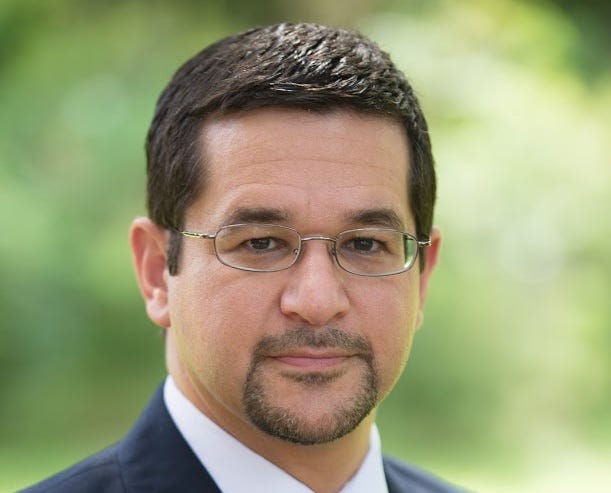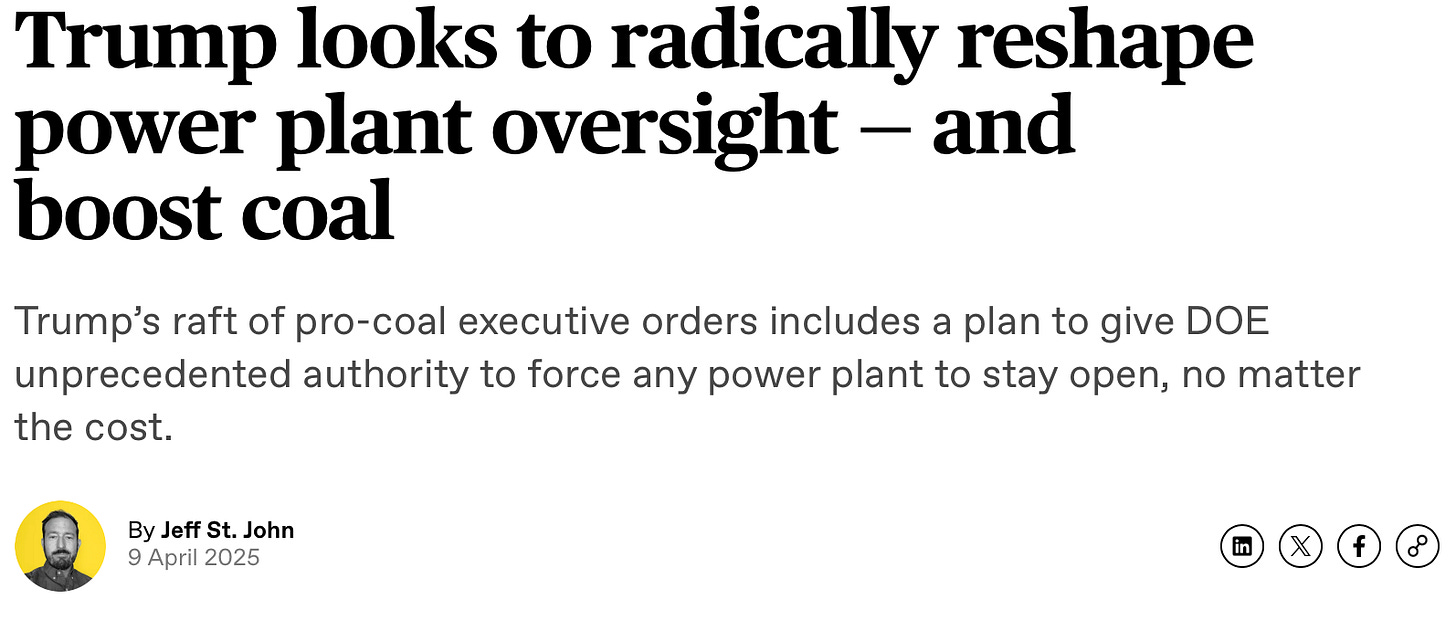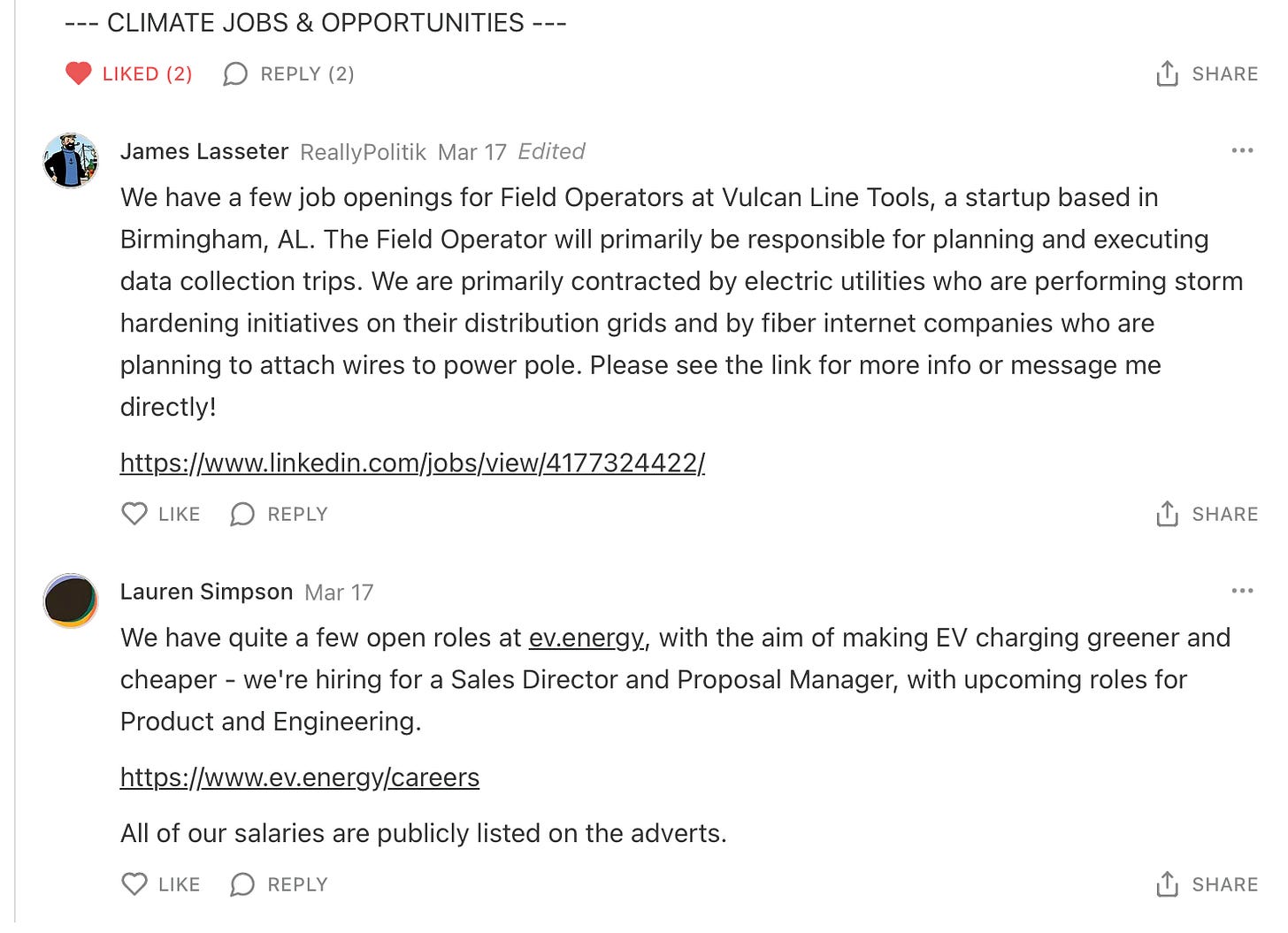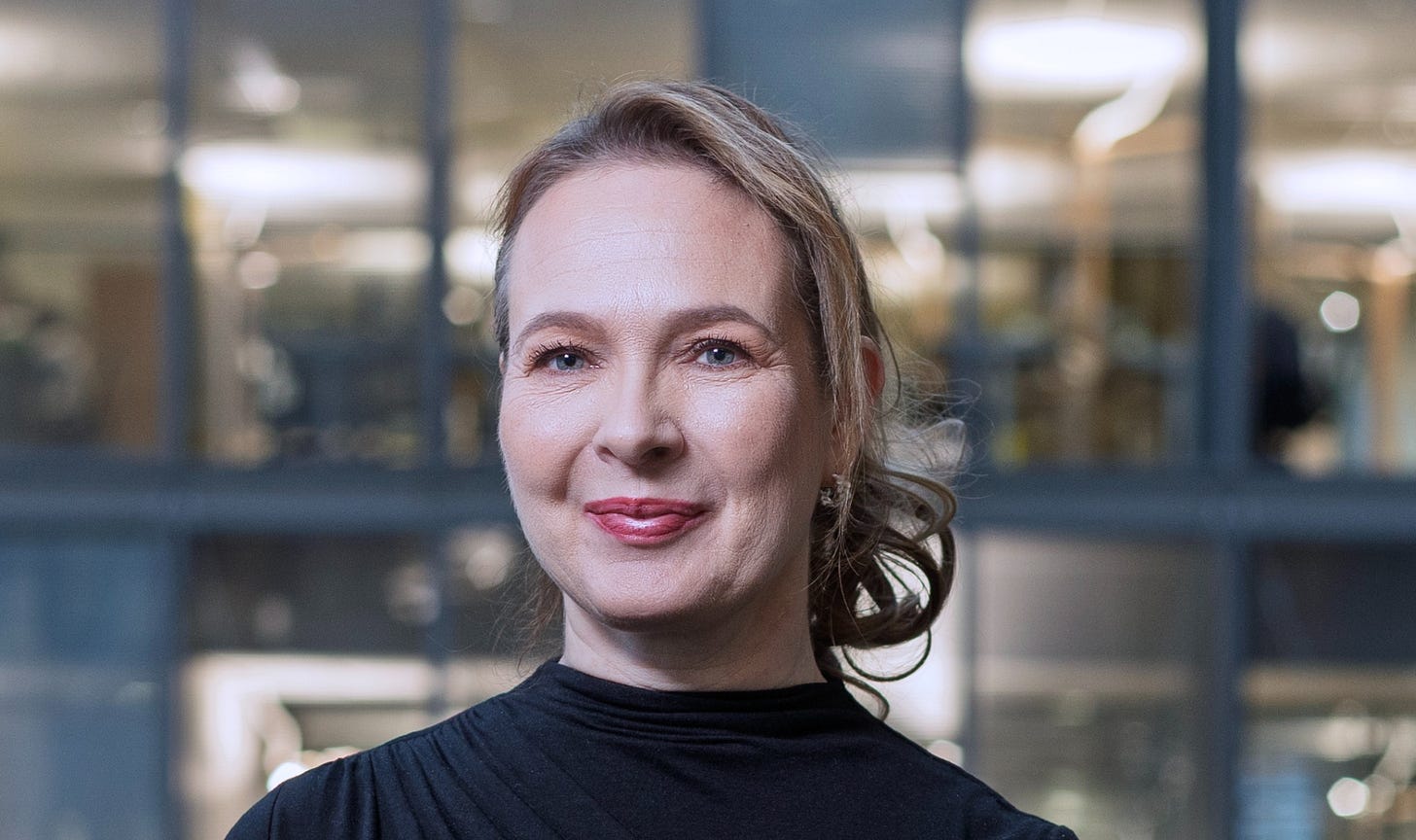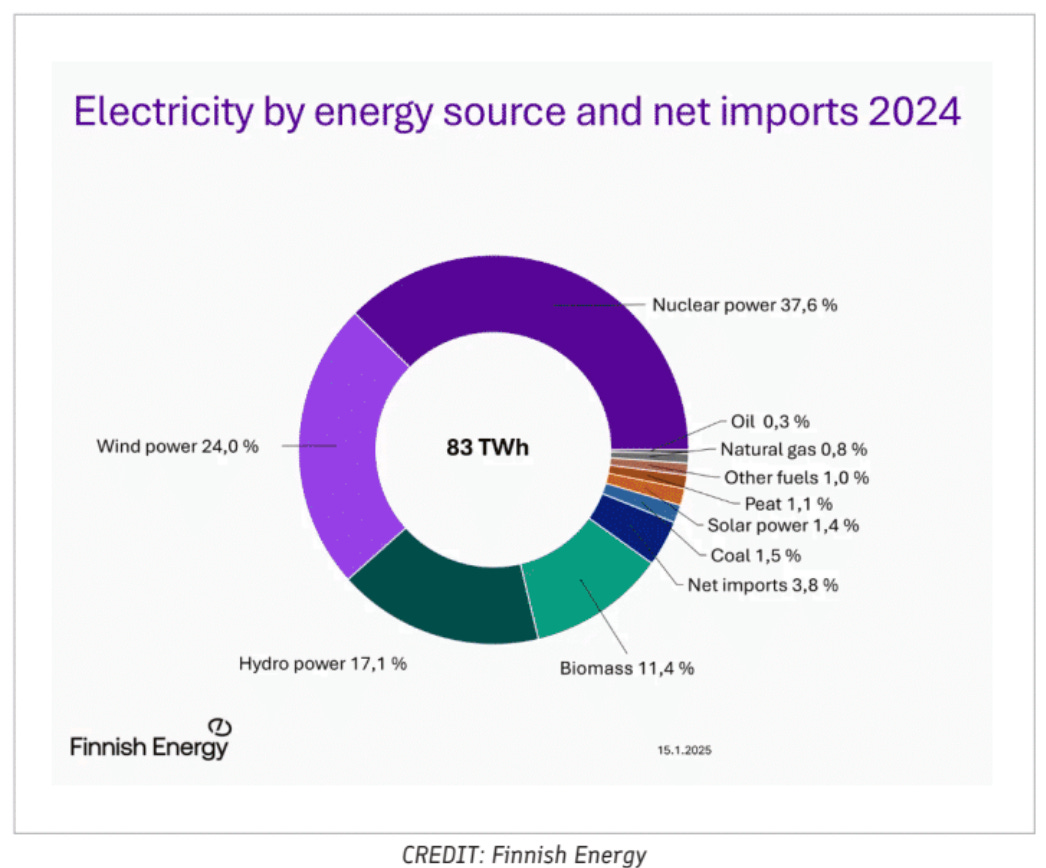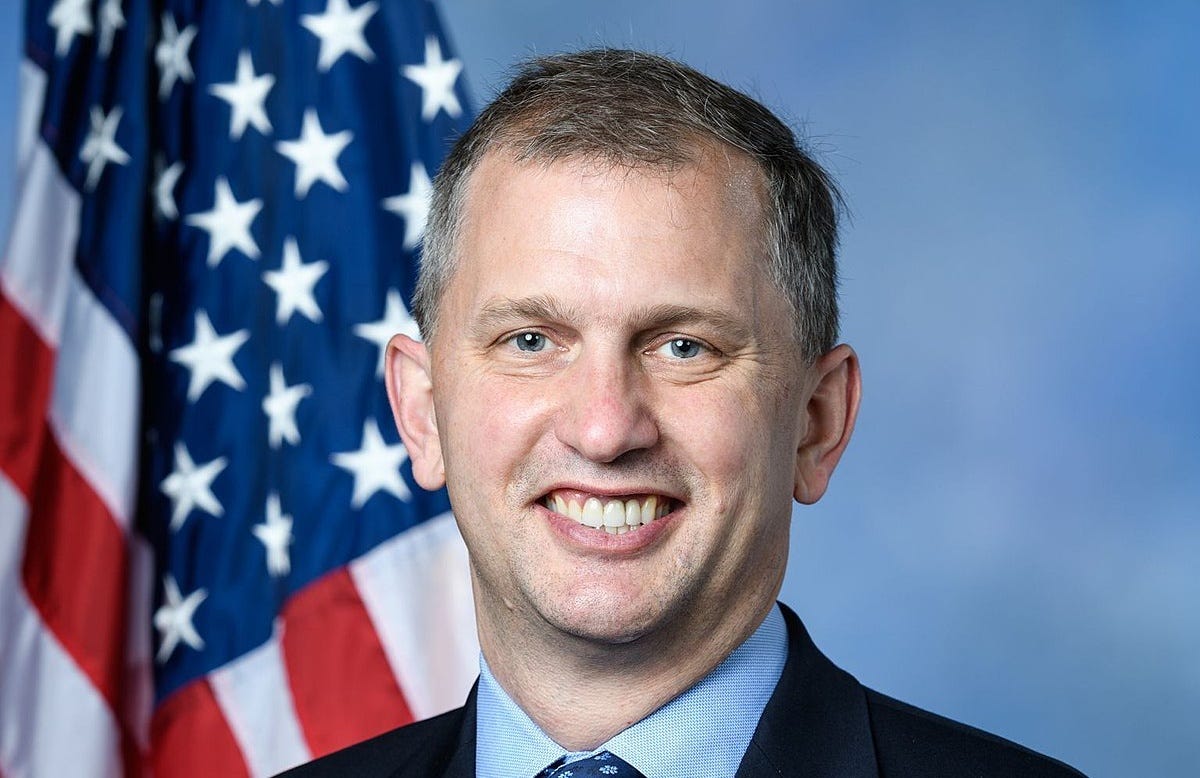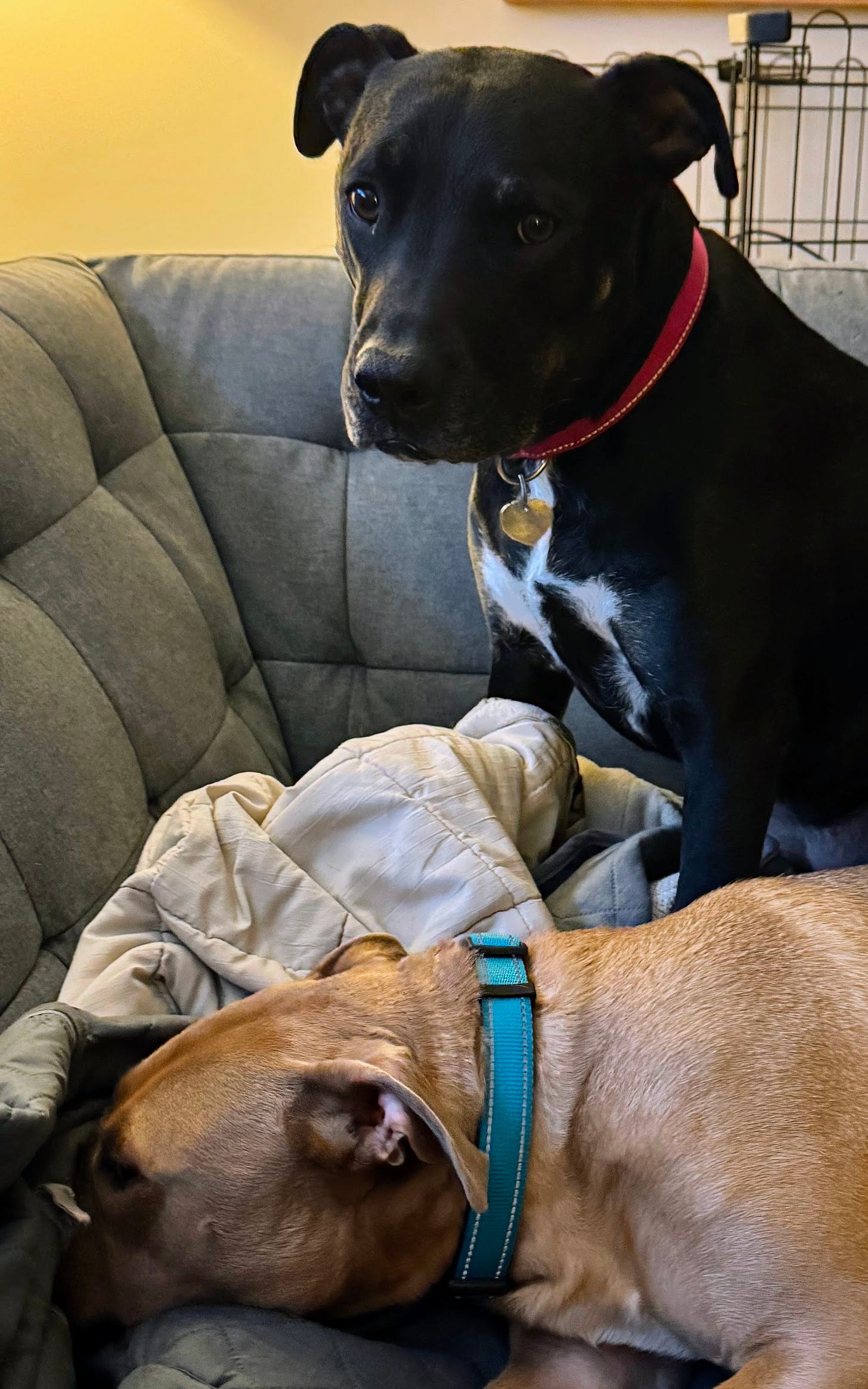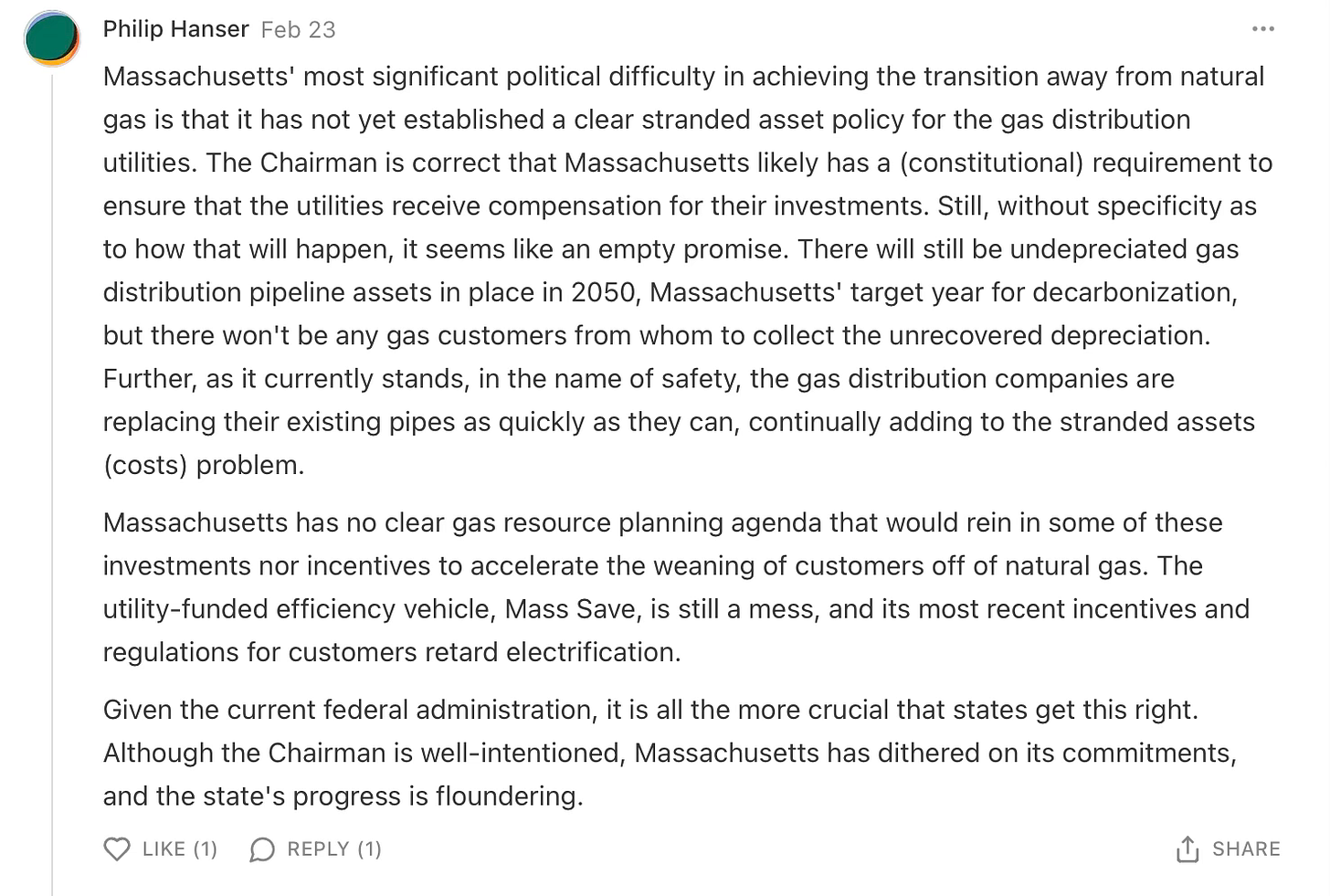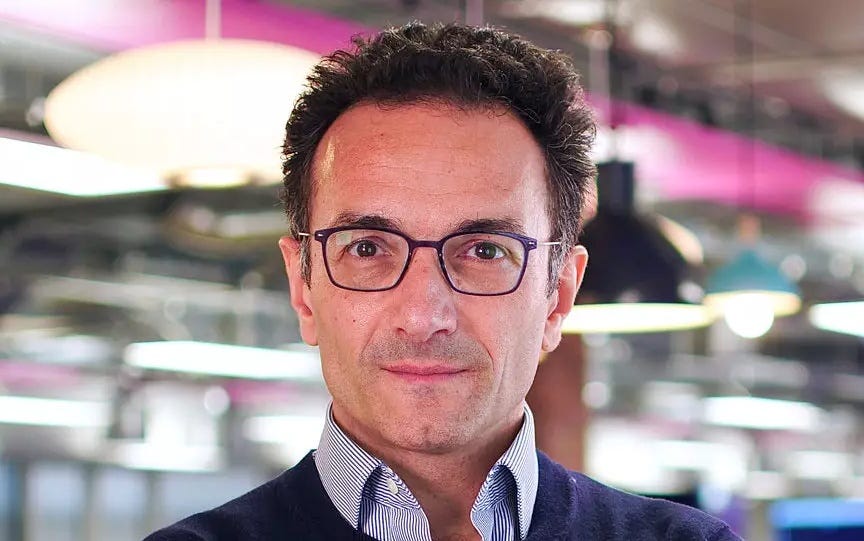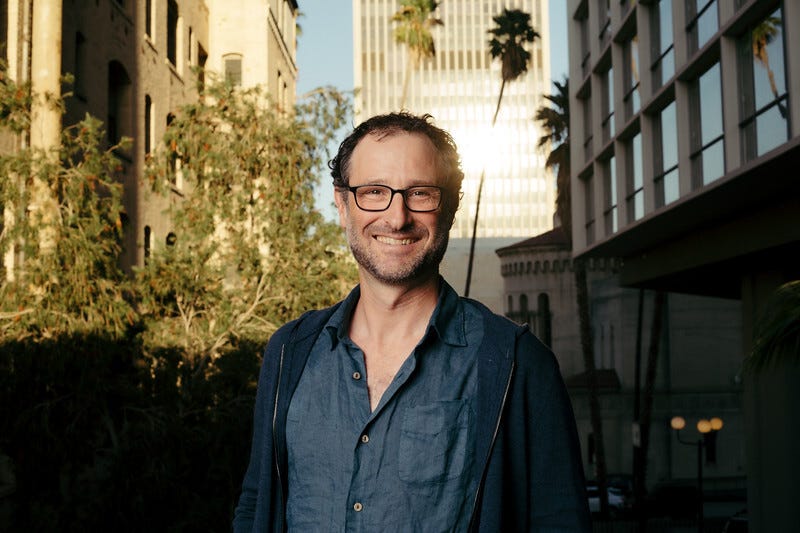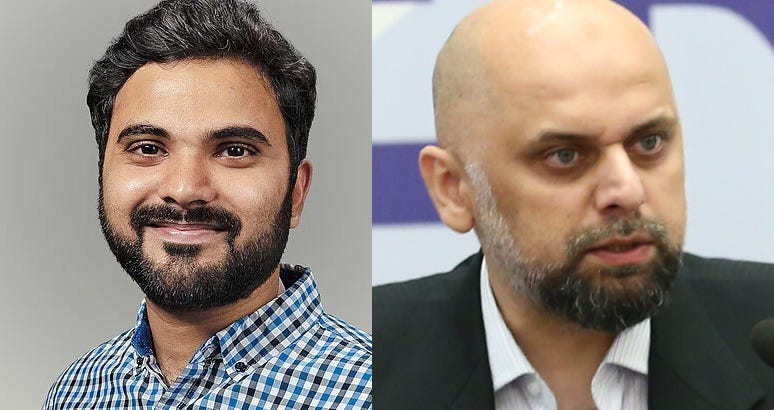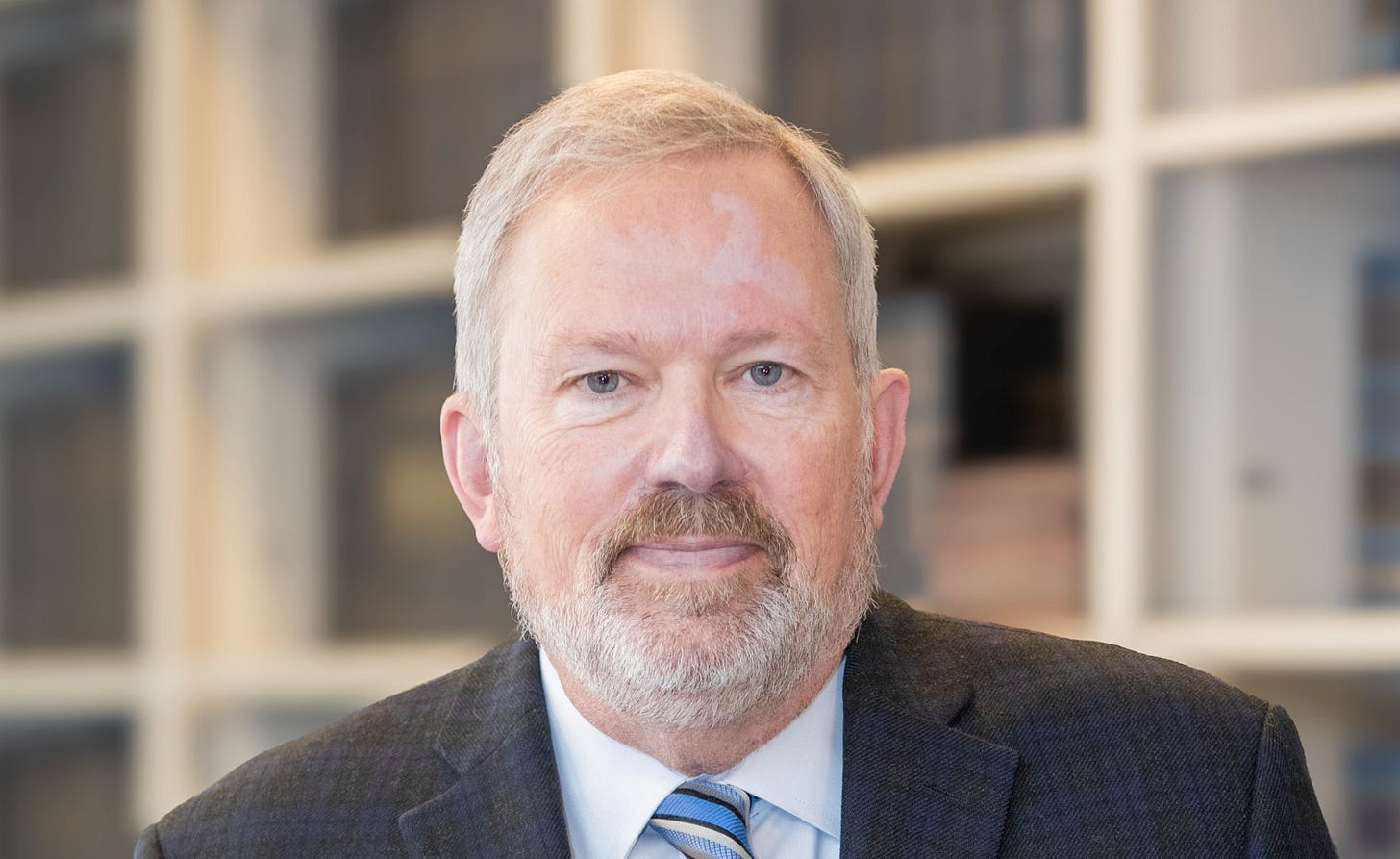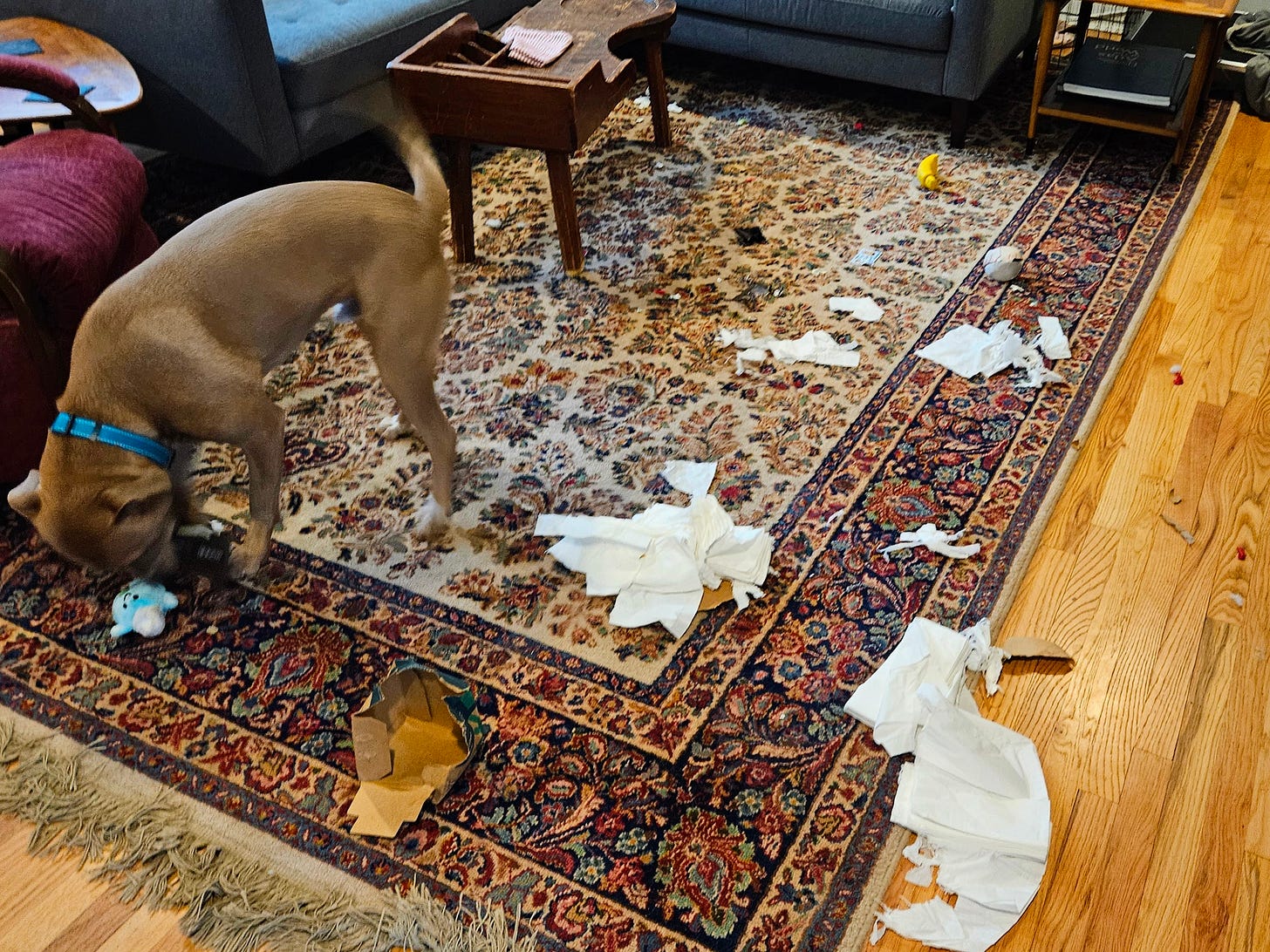What in tarnation is going on in Texas?
I'm joined by “Texas Doug” Lewin to unpack the fascinating contradictions of a state that inadvertently became the nation's renewable energy powerhouse through a free market electricity system that its politicians now seem bent on strangling. Bills before the legislature would require solar and wind developers to also build gas plants, impose extreme setback requirements only on renewables, and potentially cripple the state's economy just as data centers drive unprecedented demand growth.
(PDF transcript)
(Active transcript)
Text transcript:
David Roberts
Hello, everyone, this is Volts for April 16, 2025, "What in tarnation is going on in Texas?" I'm your host, David Roberts. Texas is an endlessly fascinating energy transition story. Years ago, its conservative legislators put in place the closest thing to a free market in electricity in the US, which they have proudly shielded from federal interference. And it has worked to keep prices low and production booming.
Lately, what that market is producing is gigawatts and gigawatts of clean energy. Together, wind, solar, and batteries constitute about 90% of the new electricity capacity installed in Texas over the last several years. Without any particular intention to do so, it has become America's renewable energy pacesetter.
But Texas conservative legislators, having created this miraculous market, are now souring on its results. For ideological reasons, they remain committed to fossil fuels — more so, it seems, than to the free markets they used to talk so much about. As we speak, they are debating several bills that would intervene in the market and have the effect of sharply curtailing clean energy development.
Is Texas going to embrace its electrified future or cling to the fuels of the past and let all that economic growth go elsewhere? To discuss that, I am joined by Doug Lewin, widely known in the clean energy world as Texas Doug. He's been closely tracking energy trends in Texas for decades, including some work in the legislature and with several private companies. He is now a consultant and runs the excellent Texas Energy and Power Newsletter and the Energy Capital podcast, to which I have become an enthusiastic subscriber. Can't wait to talk to him.
All right then, with no further ado, Doug Lewin. Welcome to Volts. Thank you so much for coming, David.
Doug Lewin
Thanks so much for having me.
David Roberts
This is overdue, Doug. We've let Texas news build up.
Doug Lewin
There's a lot of Texas news.
David Roberts
And now, we've got a giant reservoir of Texas news to get through. I thought a good place to start for people who have not been — call it like the last five years post-2020, there's just been a lot of stuff happening in Texas in the Texas energy sector. And, you know, I'm not sure everybody's paying close attention or tracking it. So maybe I thought we could just start with some scene setting, just sort of tell us the story of the last five years.
What's been happening on the Texas grid in the last five years?
Doug Lewin
I mean, first of all, Dave, I'm exhausted. There's been a lot over the last five years. Too much. And again, thanks so much for having me. I am a big fan of Volts and a subscriber there and really appreciate your work. I've learned so much from listening to the podcast, listening to you on Grist, et cetera. Yeah, look, five years, the last five years, that's an interesting time period to pick. Like most of us who work on Texas things, we mark time by Winter Storm Uri, which was just about four years ago, a little over four years ago.
That happened within that five-year period you picked. And that really has changed quite a bit and what's happened here. But I think we could talk about Winter Storm Uri. I think we probably should at some point. But yeah, over the last five years, we have gone from effectively having no battery energy storage on the grid to having over 10,000, actually today right about 11,000 megawatts of storage. At the time of Winter Storm Uri, we were at 200, four years later at 11,000 megawatts. Yeah. Solar at the time of Winter Storm Uri. You know, five years, you're talking like — I'm doing this from memory — but like 3 or 4,000 megawatts, we're now up to 30,000. So a 10x increase in solar in the last five years.
Wind has grown, but not at nearly that kind of rate. Five years ago, we were already at somewhere around 30,000 megawatts.
David Roberts
Yeah, wind's been pretty healthy in Texas for a while, right?
Doug Lewin
Yeah, yeah, yeah. Big growth in like the mid-2010s, even early 2010s, but in the 2020s, much less growth of wind. So basically, where we are right now is an easy way to think about it while it lasts — it'll be different in a few months — but right now it's about 40, 30, 10. 40 gigawatts of wind, 30 gigawatts of solar, 10 gigawatts of storage, a little bit more. So like 80 or so combined, which is, you know, if you had said to me, Dave, five years ago, "Hey, in 2025, you're going to be at 80 gigawatts of combined renewables and storage," I would have said, "I love your optimism, but I think you're a little crazy." But here we are.
David Roberts
I mean, I guess what people would want to know though is like, did they do that on purpose?
Doug Lewin
No, I don't think so. Well, let me be clear. Actually, I think what was done on purpose is, you know, 25 years ago — and I think it's important to give credit where credit is due here — the legislature at the time, 1999, and Senate Bill 7 that opened the system to competition. Some will say deregulation, but there's actually quite a bit of regulation on the system. And we should talk about —
David Roberts
I prefer restructuring.
Doug Lewin
Restructuring is exactly where I was going to go. It's exactly right. There was a decision made that the lowest cost resources in Texas would win and that we would pay only for resources that actually generate. We weren't going to have a capacity market where we'd pay for a bunch of plants to sit around idle. So that was a policy choice. And I don't think anybody — the only policy choice for renewables was made in 1999 in that restructuring bill when a very modest renewable portfolio standard was established. I believe the original number was 2,000 megawatts.
David Roberts
Wasn't that under Governor Bush, as I recall?
Doug Lewin
It sure was.
David Roberts
Crazy.
Doug Lewin
Yep, yep, it absolutely was. And Governor Bush was a supporter of that at the time. Texas, at that time, was still a mixed government. There was a Democratic speaker of the House, Pete Laney.
David Roberts
Wild.
Doug Lewin
Yeah, and a Republican Lieutenant Governor at that time. It was Rick Perry who then ascended to the governorship when Bush was elected president. And so that's when that bill passed in 1999. And really, it was partly because there was a Democratic House and they really wanted to build as wide a coalition as possible for Senate Bill 7. So there was not only a renewable portfolio standard, but there were some really important consumer protections. There was an energy efficiency resource standard, which was one of the very first in the country. And so that was a policy choice.
But, Texas far exceeded that goal. In 2005, they increased the renewable portfolio standard up to about 5,000 megawatts, again with like a 10-year period to achieve it, just like with 1999. And then we raced past that as well.
David Roberts
Yeah, I think it's fair to say, looking back, that it was the market structure that encouraged the low-cost power rather than the RPS that did most of the work here. Right. You think that's fair?
Doug Lewin
I think that is fair. I think the RPS was kind of a first mover, but once that first movement happened, then yes, market dynamics and what is called in ERCOT economic dispatch. Right. There's no preference. Like in some states, you have environmental dispatch, you give a preference to a lower emitting source. We do not have that in Texas. It is only the lowest cost that is dispatched first and that as renewables — you asked about five years ago, what's changed in the last five years? The lines kind of cross. Right. Where renewables, particularly solar and storage, became cheaper, and they've really started to win out.
David Roberts
That explains, I think, the shift from building out a ton of gas to building out a ton of renewables. But what explains just the speed, the quantity? You've written that Texas has added over 44,000 megawatts of power in the last few years, which is like a 35% increase over its base. It's adding a gigawatt a month to the grid. What explains that speed? Is that just the market, too? Is that just market dynamics, too?
Doug Lewin
I think it's market dynamics coupled with the fact that it is Texas and load growth here — you know, the load growth story is everywhere, right?
We're going to get to that. But, like again, you asked about the last five years. You know, even before you get to data centers, and what is AI going to do to the grid? Texas has seen an increase in electricity relative to the United States, something like 15 to 20% more energy growth here than in the rest. In other words, if you take both of them at like zero, five years ago, Texas is like 15, 20% more electricity used now. The rest of the country is basically flat over the last five years with some small amount of growth.
David Roberts
What on earth, what explains that?
Doug Lewin
Well, I would explain it a couple of ways. Number one, and I think this is really the place to start, is industrial load growth, much of it from the electrification of industry.
David Roberts
Interesting.
Doug Lewin
So, yeah, as a matter of fact, the first podcast episode I did of the Energy Capital Podcast was with former Commissioner Will McAdams. He was a PUC commissioner, the first appointee by Governor Abbott after Winter Storm Uri. The other three commissioners had all resigned. He was the first one appointed. And I asked him on that first episode, "What was something that was surprising to you coming out of Winter Storm Uri?" And he said, and I'm paraphrasing here, you can go back and hear his exact words. But basically something like: We were surprised by the amount of industrial electrification that had already happened.
So, you're already starting to see industries that are looking at the grid and going, "Man, there's a lot of hours out of the year where prices are like zero or ten dollars a megawatt, right? Like basically a penny a kilowatt hour. Why do we want to keep burning gas on site if we could connect to the grid?"
David Roberts
Let's highlight this a little bit. Those industrials are directly comparing gas and electricity onsite combustion of gas versus grid electricity. And electricity is winning on price, purely on price.
Doug Lewin
Well, and I think what happens for a lot of these folks, it's kind of like you remember the early days of when Walmart started talking about sustainability. It's like at first it was kind of greenwashing, and then they get into it and they're like, "Wait a minute, oh my goodness. Like there's a lot of benefits to the bottom line here. This is incredible!" And I think that's a lot of what happened with industry. So we now have a steel mill in Texas that's grid-connected. We have, Dave, an LNG export plant that is entirely powered off of the grid.
It is a 700-megawatt load. It is roughly the load of Waco or Lubbock, you know, mid-sized cities in Texas. So yeah, I would say that that is one of the major ones. As a matter of fact, the utilities, you know, a lot of people will say here, well, there's so many people moving to the state, our population is growing. And that is true. We get about 1,000 people a day roughly net in migration over the last couple of years. But you know, what we have seen in the data, and the utilities do publish this data annually, what we're seeing is that the residential numbers as far as power demand are not actually going up that much.
And I attribute a lot of that to federal standards. Right. It's really hard to buy an incandescent light bulb anymore. HVAC 14.5 SEER or whatever the exact numbers, right. So, I think even though there's more people moving here, residential load is basically flat. But industrial load, of all that load growth I was talking about a little while ago, something like 80 to 90% of it is large commercial and industrial load.
David Roberts
Interesting. So, really, this is like meat and potatoes, economic development stuff. So briefly, we've got a lot of bills to discuss. But briefly, I want to discuss Uri. These freezes are not unknown in Texas, but they're, I guess, getting relatively more likely. And as listeners probably vaguely remember, this winter storm, Uri, caused a bunch of brownouts and blackouts in Texas. As I recall, the Texas grid was quite close to completely shutting down, which would have required like black start type stuff, which would have been like an exponentially larger economic blow, etc.
So, maybe just tell us, because if you listen to your sort of off-the-shelf Republican Texas legislator, he'll say, "Look, we're building out all these renewables and then the next thing you know we're having a crisis. Voila. What we need is more gas." I think that's what they're trying to do. So, what is the real story there? What is the right lesson from Uri? And, you know, haven't there even been like a subsequent cold snap since then? Or am I, am I making that up?
Doug Lewin
Let's start with what happened during Winter Storm Uri. Why did the lights go out? Every generating resource, except for solar, interestingly, was below its targeted output level in extreme weather conditions. And gas and coal were actually the worst performers at like 50% of where they thought they were going to be. Gas plants had several problems. One was they were freezing. A lot of them were offline for freezing, but many of them that didn't freeze and were able to operate could not get fuel.
David Roberts
The coal piles were freezing, as I understand it. Right.
Doug Lewin
And coal piles as well. Yeah, yeah. Coal's performance was also very problematic. And of course, there were problems with wind turbines. And while solar exceeded where they thought it was going to be, they thought it was going to be quite low. So it cleared a very low bar. The state has four nuclear units, one of those went down as well. So you lost 25% of your nuclear output. So literally, every —
David Roberts
Was that from freezing?
Doug Lewin
It was freezing.
David Roberts
And the turbines, just out of curiosity here, turbines going down, extreme cold. Is that them freezing up, or is it something... There's just not a lot of wind when it's that cold? What's the, what went wrong with wind?
Doug Lewin
Yeah, I mean, ice is the big problem.
David Roberts
Ice, right.
Doug Lewin
Yeah, icing is really — and they can do some de-icing and there's all sorts of things that can be done to wind turbines for that. Like if you're in North Dakota, you're going to do — I mean, this is, this is part of the problem, right? This is again, not just about wind, not just about any generating resource. The same with gas. If you're in a northern climate, you're generally going to have structures around a lot of the infrastructure. But in Texas, we don't. Because if you put structures around it, then you got to cool it when it's 105 degrees outside.
So, they leave it to the open air. And that, of course, causes problems in the winter. So, it's a system that was built for summer. I mean, it's always been a summer peaking system. That is now kind of in doubt. Right. As to whether or not we're an actual summer peaking system or winter peaking system. So, this is the other key thing during Winter Storm Uri that's not talked about enough: gas supply freezing was a major, major problem. And that problem really hasn't been fixed. And we can talk more about that if you want.
And then, you have power plant freezing. There have been major improvements made there because ERCOT now inspects every single power plant in the state every three years. We have seen in subsequent winter storms, none of which have been as powerful as Winter Storm Uri. Average like, you know, the worst ones were around like 13 to 15 degrees average statewide low temperature, Uri was 6. The average statewide low was 6. And then, the third main thing that caused Uri was excessively high demand caused by inefficient heat in poorly insulated homes. It's a problem in Texas, but it's a problem throughout the south is that you have resistance heat.
It's basically a toaster oven or hair dryer technology, sized to heat the entire home or apartment. This is really a problem in apartments where, generally, apartment developers will, just as a standard practice to this day, Dave, like even in 2025, we're still building apartments with resistance heat. This means that every little apartment, 600, 800 square feet, is a 5 kilowatt load. That means they're basically the same as a 3,000 square foot home up in the suburbs of Dallas on a 100-degree day, that they're using the same amount of power on a winter day. So, demand was another really, really big problem with Winter Storm Uri.
And that has also not been addressed.
David Roberts
What did they just, really briefly, like, what did they do? What came out of it tangibly? What changed?
Doug Lewin
Two major things, I'd say there's certainly more. Well, let's say three. One, the power plant winterization I was just talking about. I think that that is extremely significant. They did do this thing where they did this whole power supply chain mapping exercise because part of what happened was — so first the gas fields froze. This started happening on February 9th, 10th, 11th, like three, four, five days before the power went out. Steady, steady increase in gas going offline or I should say decrease in gas production and output. And then once the power started to go out, then you started to have gas infrastructure like compressors and things like that.
They started getting cut off when the power was cut off. So, we ended up in a downward spiral. Now, a lot of the oil and gas folks said that there was no gas problem until the power went out. That is empirically false. And that's in the NERC and FERC report, in the UT Energy Institute report. They show there were 40% reductions in gas output before the power went out. Then once the power went out, we got down to where at the depth of the problem, around February 16th, at the worst moment, we were down 85% of the gas output out of the Permian was reduced.
So, yeah, I mean, just like really, really extreme. And then I would say the other big thing that came out of there was the legislature decided in their infinite wisdom that they would subsidize heavily new natural gas plants.
David Roberts
And this is the fund that we're going to get back to later.
Doug Lewin
Exactly, exactly. So that's a pretty big change. And I will say there was one really good thing in the Texas Energy Fund, and it was a constitutional amendment. I did not vote for it. I voted against it. But like 65% of Texans voted for it. I actually had to think about it for a minute because there was $1.8 billion in there for microgrids, or what they call the Texas Backup Power Package at critical facilities. Yeah, it's $1.8 billion. Not a small amount of money for hospitals, water treatment facilities, nursing homes, police stations.
And unfortunately, two years later, that still has not been implemented.
David Roberts
But why, why did you vote against it?
Doug Lewin
What I voted against was, it was a $10 billion fund. $7.2 billion was for gas plants. And I'm not — look, I actually think we're going to build gas plants in the state. And if they're peaker plants, the emissions aren't that huge a deal. I'm not generally for building new gas infrastructure, but I think with this load growth story, we're going to get some. Whether we like it or not. The bigger issue is just, should the state act as a bank? You know, what happens to the energy-only market if now you have the state subsidizing gas to this degree?
And if you're a gas plant developer, are you ever going to build in Texas unless the legislature gives you more money? Like, probably not, right? So, I just thought it was too distortive. But that $1.8 billion in there was really attractive and I almost voted for it.
David Roberts
Interesting. So, okay, one more piece of scene setting which we've segued into quite well here, which is demand projections. They're crazy everywhere.
Doug Lewin
Yes.
David Roberts
Particularly crazy in Texas.
Doug Lewin
Yes.
David Roberts
So, tell us a little bit about what they expect. And is it mostly data centers?
Doug Lewin
So, the answer to the last question is yes, mostly data centers, but there's quite a lot of other loads in Texas that are looking to connect to the grid, including, by the way, oil and gas loads because the oil and gas drillers want to connect to the grid for the same reason we were talking about industrial electrification. Right. Just think of it as another industrial source. And right now, if you're out in the Permian putting a rig, you know, and drilling, you're going to be using generally diesel generation, one of the most expensive ways to produce power.
David Roberts
Yeah.
Doug Lewin
So, there's a real push to build transmission in Texas, and that push is mostly coming from the oil and gas industry.
David Roberts
Electrify oil and gas.
Doug Lewin
Electrify fracking operations, yeah. Look, I mean, look what's happening right now, right where you're just now we're recording obviously on April 7th, so like, you know, when this comes out in a week, this should generally be the same, but things change so fast. I just want to say that because I don't want to look totally stupid when it comes out. But right, like this week we're seeing projections of oil for 2026 in the $60 range. The Federal Reserve Bank of Dallas does this survey of oil and gas drillers and the break-even point in the Permian is right around 63, 64 bucks for a new rig.
So, if the price of oil globally goes down to $60, people in Texas are going to be hurting. Local government, state government, like that, is a big part of the economy. And if you can actually connect your oil and gas drilling to the grid, that lowers your cost, that might get you below that break-even. So, it's really, this is really like, I think, Dave, like the main story about Texas right now is that like the reality of renewables are starting slowly to catch up to the business class, the political class. People are starting to get their heads around like, "Oh, maybe this isn't a cage match of oil and gas versus renewables. Like maybe renewables actually are super important for economic growth."
Like you said earlier, we've added 44 gigawatts over the last four years, and 90% of that is from renewables. Where would our economy be if we didn't have solar storage? Where would we have been last summer, 2024, which was the sixth hottest summer in Texas history? Where would we have been in 2023, the second hottest summer in Texas history, without all that solar and storage on the grid?
David Roberts
Some people are making this leap. Some people, the business community, let's say, will discuss whether that revelation has reached the legislature yet.
Doug Lewin
Yeah, I think it's reached a lot of legislators. There are some that are laggards and are not quite there yet. But let's come back to the load growth question because I think it's really, really fascinating what's happening right now. So, in April of last year, ERCOT, in a sort of, it's super watched by stakeholders, but not by like the popular press or the general public. It's a group called the RPG (Regional Planning Group), and they put together these transmission plans and I got texts from a few different people that day like, "Hey, are you watching this?"
So, I tuned in and ERCOT is projecting their April last year. So, just about a year ago, that load in 2030 will reach 152 gigawatts. Now, our peak at that point was right at and it still is right at about 85 gigawatts. So, going to 152 in five years. At that point, it's six years. Just extraordinary, extraordinary.
David Roberts
Almost doubling.
Doug Lewin
Yeah, almost a doubling. Now, they have just almost literally today, the end of last week, and there's an ERCOT board meeting going on later today and they've started to revise those and now they're saying something like 137 by 2029. But here's the key to this, though, and how to put all these numbers in some context. There's some like, history in context behind these numbers. During the 2023 legislative session, the oil and gas industry pushed for a bill that was House Bill 5066 and this was the bill that started the planning around those transmission lines going out to the Permian Basin, which the commission is actively considering right now in May and hopefully will result in the first 765 kilovolt transmission lines ever built in the state of Texas.
That decision is coming, but not here yet. And again, the oil and gas industry kind of wanted that. So they put into law some requirements for ERCOT to start really considering new loads. This included this process they call officer letters. So if you're considering connecting to a utility's infrastructure, then you would tell the utility that. And then the utility, through an officer letter, an officer of that utility would sign something to ERCOT saying, we're getting this much load considered. Well, what they didn't know in the 2023 session was that this whole data center boom was about to happen.
Or maybe not the boom, but the speculative boom. Whether it happens or not, we don't know yet. I think for the record, it probably will. So then you get to the point where these officer letters are just pouring in and ERCOT is taking all of those and counting them in that number for 150. So what they put out today is if 50% of those officer letters come true, we would be somewhere around 121 gigawatts at the end of the decade. If 25% of them come true, we'd be at 113. So I think 113 to 121 is probably where we're going to be in five years.
David Roberts
Which is still crazy pants.
Doug Lewin
It would put us in the range of the kinds of growth we haven't seen in the state since the 1960s, when air conditioners were finally hitting the grid.
David Roberts
And the hyperscalers, are they particularly attracted to Texas for the market, the climate, the energy mix? Why do they love Texas so much?
Doug Lewin
All of the above. Right. I think first and foremost. Well, let's say 1A, 1B: I mean, availability of renewables is a huge draw to a lot of these folks. Right. I mean, it's just, it's cheap power. Now, does that mean they're gonna be 100% wind and solar? Of course not. They're going to have batteries. They'll probably have some gas. We've already seen, I mean, Project Stargate. Which President Trump talked about in his very first day in office. Like, what did he spend his first full day in office doing? Talking about Stargate, which is this, what, OpenAI and Oracle, SoftBank thing.
And where's the first site? Abilene, Texas. Right now, they're probably going to have some gas there. They're also going to have a lot of renewables because. And this is again, where I —
David Roberts
A lot of them have, like, promises and pledges, like your Google and your Microsoft and your Amazon. I mean, they've — who knows how firm those commitments will be when it comes to it. But at least they say they're trying to do this with all renewables.
Doug Lewin
Yeah, and if you're going to do it anywhere, you're going to do it in Texas. All renewables are going to be very tough for these kinds of projects. I think there will be some gas integrated there, and I think particularly if you're doing it in areas where otherwise that gas probably would have been flared or vented. Like Crusoe is one of the projects, one of the companies that is involved with that Stargate project, and that's one of the things they've been working on originally for Bitcoin, you know, that now they're primarily working on data centers. And so yeah, I think the ability to procure cheap power and that also means renewable power, because like gas, you don't know what the fuel cost is going to be next month, next year, or five years from now.
You don't know. You know what the fuel cost is going to be for solar and wind, right? You know exactly what it's going to be, right? So that's number one. But I would say like 1B, right there along with it, is the market structure. Because if you're trying to go to Georgia or North Carolina, for instance, you've got to cut a deal with Southern or Duke, you've got to deal with the regulators and a special tariff.
David Roberts
The interconnection queues are slower. Much slower.
Doug Lewin
Much slower. Exactly. So, I think the market structure, the speed to market, the ability to sign a bilateral deal without having to go through all the "Mother May I's" associated with most of the other states. And look, I mean, just — yeah, the ability to build here. Right. I mean, and that's a lot of what is at stake in this legislative session — a lot of legislators want to take that away. But assuming that's not taken away, which is a big assumption, the ability to actually build quickly in Texas is pretty much unparalleled anywhere else in the US.
David Roberts
Okay, so this is more scene setting than I intended, but it's good. So, Texas is in the midst of a renewables building boom. Unprecedented. Also on the verge of unprecedented load growth. Also struggling with its gas system even as wind, solar, and batteries race ahead. So, this is the situation today. Into this situation comes the Texas legislature, the least hard-working legislature in the country. What, do they meet every two, is it every two years?
Doug Lewin
They're also the least paid, in fairness. They get paid $600 a month. That's what legislators get paid.
David Roberts
And they meet every two years for like three months?
Doug Lewin
It's a biennial legislature, right? The constitution goes back to 1876 at the end of Reconstruction. So, extremely, you know, people that were very suspicious of government and put a very weak governor into the constitution and a legislature that could only meet every two years.
David Roberts
And now, it's like one of the top 10 economies of the world.
Doug Lewin
8th.
David Roberts
Let's discuss a few of these bills that are going on. I swear to God, Doug, I've been reading your newsletter — which by the way, is just excellent, really reminds me of the old blog days. Just the joy of: Here's a dude who's obsessed with a thing and is going to explain it to you. I love that model. So, let's discuss some of these bills. I was reading about them in your work and all the stuff you sent, and I swear at several points I thought I had my head around it. And then some part of my brain is like, "No, that can't be it. That can't be right."
Like, I just kept reading over and over again. But apparently, it's all as crazy as it looks. So, let's talk about some of the bills. First, let's talk about some bills where they're just clearly taking a shot at renewables. There's this Senate Bill 819, which basically would impose these regulations on the siting of renewable energy that are, I think it's fair to say, exponentially tighter, more restrictive than anything that's ever been put on oil and gas in the state. So, tell us about 819. What does it do?
And, is there even on paper, a coherent rationale for this, or is it just, "Frigging hippie energy, we hate it. Let's try to get it."
Doug Lewin
Yeah, I think mostly it's some landowners, very, very wealthy landowners that really don't like looking at wind turbines and have just kind of gone on this crusade against renewables. You know, a lot of times this is framed as oil and gas industry against renewables. You have not seen the oil and gas industry come out for those kinds of bills. Again, they want the low power from renewables. You know, so it's hard for me to give the rationale for it. I don't understand it. I work very hard to understand different points of view and to understand what people think very differently.
I've done podcasts on this. For example, I interviewed former Governor Perry for my podcast. I've interviewed Congressman Casar. I talked to people all over the political spectrum. I try to understand people's views, views that are very different from my own. And I just — I can't get my head around this. It is a major infringement on private property rights. Texas has held private property rights sacred for as long as it's been a state and before that, when it was its own country for 10 years.
I mean, that impulse runs very, very deep. It would absolutely hurt rural counties.
David Roberts
Say what it would do first.
Doug Lewin
Yeah, okay. So, it would put into place a requirement that there be permitting for renewables so the PUC could approve or deny any solar or wind project. It has setbacks that would be bigger than just about any other state. I know in the original bill it was 3,000ft for wind, like more than half a mile. The author of the bill, in discussing her own bill, asked by another member of the committee, she said, "It seems strident to me."
David Roberts
Like, yeah, in her head, she's like, "Wait, which lobbyist put that in?"
Doug Lewin
I guess I don't. I can't understand the thought process here.
David Roberts
And just to note, like, you can build a fracking field, like, right next to a church or a playground or whatever, but a wind turbine, you have to be half a mile away.
Doug Lewin
So famously, Texas, in 2015, there was a community, Denton. The University of North Texas is up there. It's just north of the Dallas Fort Worth area. It's in the Dallas Fort Worth area, but a little bit north of that. Denton County is north of Tarrant County, which is where Fort Worth is, a pretty large county now. But it was kind of just really in its high growth phase at that time. And a lot of folks in that community, through the city council, passed an ordinance like, "Hey, we'd like some setbacks on oil and gas drilling."
The Barnett Shale, you still had a lot of drilling up there and, like, right next to nursing homes and daycare centers and schools, and they passed an ordinance with some setbacks. And the legislature said, "You can't do that." House Bill 40 in 2015 passed overwhelmingly with strong bipartisan support and said, "No, no, you cannot do that." They took away the ability of local governments.
David Roberts
Can't do that to oil and gas.
Doug Lewin
Correct. And now, and frankly, you can't do it to renewables right now. But that's what she wants to put in place, Senator Kolkhorst. Only for renewables.
David Roberts
Hilarious.
Doug Lewin
The bill does not address anything like a petrochemical facility, an oil and gas drilling rig, anything like that. The wind setbacks would be far more, I think, like, 15 times what any setback is for oil and gas drilling. Right. As if wind was more dangerous to somebody than oil and gas drilling. It's just —
David Roberts
We should just, maybe, make a note here that fracking fields and petrochemical facilities actually do produce pollution.
Doug Lewin
Yeah.
David Roberts
And wind turbines actually don't.
Doug Lewin
Yeah, and so here's the other thing I want to say about this, Dave, that I think is super, super important. And I will have out in my podcast feed and we'll put it on YouTube as well. I think it's almost done. I've got this little compilation of clips from the hearing. I have never seen an energy hearing like this. I've been watching the legislature on energy for more than 20 years. I've never seen a bill with even close to half as many people testify against the bill. Fifty people testified in person against this bill.
David Roberts
Interesting.
Doug Lewin
A hundred registered for it, including folks you wouldn't necessarily suspect. Tech Association of Business, Association of Electric Companies, etc . Like just a wide, wide variety of different folks opposed to the bill. But what really struck me were three particular witnesses. One from Armstrong County, population like 2,000 or 3,000. And the gentleman from there said, "Look, we don't have oil and gas. This is a place that's just southeast of Amarillo, way up in the Panhandle. We don't have oil and gas up here. We do have wind and sun." And he's, you know, he didn't testify to this.
But you can look up the numbers on txrenewables.net. You can go county by county and see how many tax payments and payments to landowners were made. There are $50 million in payments to landowners and local governments from the wind farms they have there now over the life of the project. And they're planning to build another one up there that would add another 60 million to a county of 2,000 or 3,000 people. That is like the lifeblood of that community. Why would a Republican legislator want to hurt rural Texas? And so that was Armstrong. He had a guy from Schleicher County near San Angelo in West Texas, a guy from Nacogdoches County in East Texas who said he had solar on his land and now he's able to pay for his kids' college.
And he's like, "I don't want people in Austin telling me I can't build solar on my land." They went ahead and passed it out of committee seven to three on a party line vote anyway, so.
David Roberts
Right, well, so this brings me to my question, Doug, which is like, here's a bill with no rationale that you can even retrofit from the bill. The bill's own sponsor doesn't seem totally clued into what it does or why. Everyone seems to hate it. It's got this enormous public opposition. It's economically utterly daft. It's, you know, just like — so surely it won't pass, right?
Doug Lewin
It may. We don't know, obviously. I'm certainly hopeful it won't pass. A very similar bill, it was called Senate Bill 624 in 2023, passed the Senate and did not pass the House. And like we were talking about earlier, I think there is a growing awareness even among some of these people that are voting for it in the Senate, particularly those that sat there and listened to testimony from people in their district. I mean, the senator who represents that man from Nacogdoches, Senator Nichols, was sitting there during the hearing, listening to him, and I presume voted for it anyway.
I think he must have, because I think it's seven to four, Republican and Democrats, so he must have voted for it, you know. But I think there's a growing awareness that renewables are really important for economic development in rural areas. I had testimony from the San Angelo Chamber of Commerce out in West Texas saying, "You know, we need this for our business development." I think there's an increased awareness, particularly with solar and storage, that we absolutely have to have it for the summertime. The ERCOT CEO, the chairman of the PUC, have been saying publicly for quite a while now that we almost certainly would have had energy emergencies last summer without solar and storage.
It's good for grid reliability. We also know that renewables have lowered costs for consumers by $20 billion over the last decade. There was a study out of the University of Texas done by Josh Rhodes that shows that there's over $20 billion of savings so far from renewables. So, you know what would happen to consumers without them. I am certainly hopeful that cooler heads will prevail, but you never know. Legislative sessions are crazy things and anything can happen.
David Roberts
Well, let's throw another one in there while we're talking about it. Senate Bill 715 made me laugh. It would require individual wind and solar resources to, as far as I can tell, "firm," i.e., buy some natural gas. And not only does each individual project have to do this, but it's retroactive. So all the existing wind and solar projects have to go buy some natural gas. Like, am I misreading that? Anybody who understands grids, I think, I hope, understands that like firming is a grid-wide — you know, it's the level of the grid where you get firmness or lack of firmness.
The idea that an individual solar field needs to firm itself is very peculiar. Am I missing something, or is that what it looks like?
Doug Lewin
No, that is what it looks like. I mean, this bill has been... Yes, this bill has been pushed by the Texas Public Policy Foundation for a long time. They pushed a version of it in the last session as well. And yes, you know, even the organization for the thermal generators called Powering Texas, they testified against the bill. The bill actually would require firming of all resources. I mean, the cost of a bill like that, Dave, would be astronomical because, as one witness at the hearing put it, you're basically creating like a thousand little mini ERCOTs.
Like every power plant, it has to be its own little grid.
David Roberts
Right?
Doug Lewin
You get no economy of scale. That's... It's insane. It's not the way it's supposed to work.
David Roberts
The whole point of a grid, literally the point of a grid, is to share that. It's literally why we build grids.
Doug Lewin
Yeah, they didn't say it this time, but testifying on a very similar bill two years ago, ERCOT CEO Pablo Vegas literally said this would represent a tax on consumers, which is exactly correct and a massive one at that. So again, hopefully, cooler heads will prevail. You know, I can't imagine... You know, look, everybody just kind of knows in Texas, like the Senate is just going to pass really, really bad bills. And it's unfortunate.
David Roberts
So, the House is where you go for sanity?
Doug Lewin
Look, the Senate is where the idea for that microgrid, you know, for critical facilities, came out of two years ago. I want to give credit where credit is due. Like most things in life, right, it's nuanced, it's complicated. They passed a really good energy efficiency bill out of the Senate last session. The House didn't pass it. I think for the Senate, the main thing is, I hope they get to a point where they recognize that punching down at renewables — this is like the article I wrote called "A Time for Choosing," you know, which is like, which way do you want to go?
Do you want to try to destroy, destroy and push down and suppress, or do you want to build up? Do you want to spend your time figuring out how to build a nuclear industry in Texas, how to build a geothermal industry, how to get high voltage transmission, how to reduce energy waste?
David Roberts
There's a lot to do, and every one of these wastes time that you could, especially when you only have a few months every two years.
Doug Lewin
Exactly.
David Roberts
Time is at a premium. So, either one of those bills we just mentioned, if they passed as written, would just be devastating to the renewables industry in Texas. And yet, neither is the craziest bill on offer here. Now we're coming to the main course of crazy, which again, I had to read like 10 times because I literally didn't believe it. So, Senate Bill 388 mandates that new additions to the Texas grid have to be at least 50% dispatchable, which basically means gas, because they wrote batteries out of it, which I'd like to return to, which basically means gas, meaning that for every megawatt of wind or solar or batteries that you install, you have to by law also install a megawatt of gas.
It has to be 50/50. Is that as crazy as it sounds?
Doug Lewin
Yeah, it's every bit as crazy as it sounds. Yeah, how you can define the word dispatchable to not include batteries is beyond me.
David Roberts
Can you explain that? What on earth? Batteries are like the quintessential, like...
Doug Lewin
Yeah, I can explain it by like, somebody thinks, the author of the bill, Senator Phil King, thinks that gas is needed on the grid. And so, he's defined dispatchable to exclude battery storage because the point of his bill is trying to get gas. The problem, of course, with this is, and hopefully the House will realize this, is that you can't actually get gas fast enough to meet — you know, we were talking about load growth earlier in that 113 to 121, which is like the lower end of the range. You are not building 40 gigawatts of gas in the next five years.
That is an impossibility. GE Vernova is only producing 20 gigawatts of gas turbines globally annually. Right. So, this is an impossibility. So, what you were doing, if you pass Senate Bill 388, or frankly 819 or 715, is you are imposing a cap on the Texas economy. You are saying, "This is the limit of growth." I mean, it basically turns the Texas legislature into degrowthers. Right. Which is wild. Right.
David Roberts
Kind of a trend in MAGA world, honestly, as we're seeing.
Doug Lewin
I guess they could reduce emissions that way by killing the Texas economy.
David Roberts
They're going to be secret climate heroes.
Doug Lewin
Right. Seems like a wild way to go about doing it to me.
David Roberts
You said this, but we should emphasize: it's not that you can't build enough gas plants that fast because you don't have enough money or political will. There just isn't the supply chain for it. Like, physically, you can't do it no matter how much will you have.
Doug Lewin
Yeah, exactly right. Exactly right. And they did... So now, it's every megawatt of solar or wind must have a megawatt of thermal gas, coal, nuclear.
David Roberts
How would you even enforce that? Like, who, who, who is the enforcement mechanism here? Who does this apply to? Like, if I'm a solar developer, do I literally have to also be a natural gas developer? Like, how is this supposed to work?
Doug Lewin
Yeah, I mean, that is like a weedier problem with the grid. There's just like the basic, like "this is impossible," which is the main problem with the bill. But when you get down into the weeds of the bill, like the mechanism of it, there was a proposal years ago, right after Uri, something called "dispatchable energy credits," which of course was conceptualized to include batteries because they're very, very dispatchable. And what you would do for a credit program like that, it would work like Renewable Energy Certificates and you would put the requirement on load-serving entities.
Right, like retail electric providers, munis, co-ops, things like that. This, it appears from the bill, the credit's supposed to be placed on generators. So, you would have generators paying other generators, which is again part of the reason why no generators really like it because they're all like, "We don't really want to pay each other. We compete against each other." Like, it's just bizarre. And I, as far as I could tell, the bill didn't really have an alternative compliance payment. Like, what if credits aren't available, could you pay into a fund so you could still develop?
This bill was kind of silent. What's happening in the Senate, unfortunately, is they just aren't taking the time to really work with people that disagree with them and actually try to come up with — because if you want to get more dispatchable power on the grid, like you can do that, there are mechanisms to make it work.
David Roberts
Batteries are flooding onto the grid at historic rates. Like hallelujah, it's happening. What's the problem?
Doug Lewin
We added 5 gigawatts of battery storage in 2024. We will probably add more than that in 2025. And they are having a fantastic impact on the grid. They are helping grid reliability.
David Roberts
Precisely because they are dispatchable, precisely because.
Doug Lewin
Let me just say this. In the summer of 2023 — and it was hotter in 2023 than 2024. But 2024 again was the sixth hottest summer we'd ever had. So, it wasn't like it was a mild summer. We had 11 conservation alerts in the summer of 2023 and one energy emergency where frequency dropped to 59.77. We bypassed EEA 1, went straight to Energy Emergency Alert Level 2, which is very, very rare. I don't know if it's unprecedented, but it might be. It's at least very, very rare. 2024 again, sixth hottest summer. Not only did we not have an energy emergency, no conservation alerts all summer long.
David Roberts
Amazing.
Doug Lewin
Like solar and storage, they are so well-suited to Texas summers.
David Roberts
This is happening in California too. I feel like I should probably do a pod just on this. I feel like it's an under-told story. Like, batteries are coming and they are doing what people promised they would do faster and better and bigger than even anticipated. Like, they're helping grids on a mass scale today.
Doug Lewin
And, by the way, this is really where Texas, I think, really needs some focus. We've made some strides, but we've started to lag. That's where the progress has slowed down, on the demand side, on the distributed side.
David Roberts
Well, you're segueing, Doug. It's like you're setting me up here — you're tossing me lobs. So, just to wrap up 388, it would require 50% dispatchable. It's crazy. And as you say, like the take-home message here is, if it were passed, it would effectively cap the growth of the Texas economy at the level of gas growth, which is very slow right now. So, it would really be like shooting one of the most vibrant economies in the country in the leg for zero reason, for absolutely no reason. Okay, so done with that.
So, let's turn to, like, if I have massive load growth coming and I know it, and gas is slow, very slow to come online and, like, even at a historic pace of building wind and solar, there's almost no prospect that you could keep up with that ludicrous level of load growth. So, all of that points to the demand side. If we can't keep up on the supply side, let's turn to the demand side. That's energy efficiency and demand response. So, I think Texas is sort of legendarily not very good on energy efficiency. Is that also true on demand response?
Is there anything happening on the demand side in the legislature?
Doug Lewin
Well, not necessarily in the legislature. There's a little bit in the legislature this week. There'll be some hearings on an energy efficiency council and some moves to rein in resistance heat. Some really good bills are being heard this week, and maybe something will pass. But there are some good things happening in Texas, Dave. So, like, number one, Texas established the Aggregated Distributed Energy Resource Task Force and a pilot associated with that a couple of years ago. That pilot moved at a very, very rapid speed to the point where now you actually can sell battery storage. Or they're getting to the point where even other aggregated distributed resources can sell into the grid and actually earn ancillary service revenues.
David Roberts
Yeah, I had Base Power on the pod. People may recall they're basically just like giving batteries away to residential customers in exchange for the ability to use those, aggregate those batteries, and sell the capacity.
Doug Lewin
And that's also, by the way, another advantage of having a competitive market. Right. They're set up as a retail electric provider. Low barrier to entry. To become a retail electric provider, you really don't have to ask for permission. If you've got capital, a business plan, and motivation, you can get into the market and start signing up customers, which I think is a huge attribute for Texas. So this is really where I think things need to go. We need to get those retail electric providers working with policymakers in the state, PUC, ERCOT, the legislature, to create some kind of a vision for the demand side that really takes into account all of the different things that are there.
Because, for the wintertime, you really got to go after resistance heat. There are two different studies now, American Council for Energy Efficient Economy and Texas A&M University, the second of which was a study commissioned by ERCOT. Both of those found that there are 12 to 23 gigawatts of economic reductions available from just replacing resistance heat with heat pumps.
David Roberts
You know, it's interesting, in most places where they're talking about electrifying heat, the danger is that you're creating a giant winter peak, right? Because mostly in most places, when you're moving to heat pumps, you're moving from natural gas to heat pumps or fuel oil to heat pumps. But here, if you're moving from resistance heating to heat pumps, you're actually going to have the effect of lowering the winter peak. So, like, that's not something that heat pumps usually do.
Doug Lewin
No, but we are already a pretty electrified state. It's 61% of homes in Texas are electric only, you know, about 35, 36% are gas. So, really focusing on that electric to electric, making it more efficient is really where it's at. And then when you do that, you're getting in heat pumps that usually have inverter compressors and can receive a signal. So now you've enabled more demand response. Right. So, demand response is particularly great for the summer. And this is a conversation I've tried to have with ERCOT and anybody who will listen, frankly, of just like, residential demand response, because ERCOT is proposing, at the board meeting happening today, they're proposing a new residential demand response program.
And that's great. We should have more residential demand response.
David Roberts
But does this mean, just let me pause you, is this the style of demand response that they're talking about that they have today, is that where they sort of, like, send a note to a bunch of ratepayers and say, "Hey, can you turn off your stuff at X hour?" Like, is this all, like, voluntary? It's not automated, in other words?
Doug Lewin
There are no details associated with what ERCOT has proposed yet. They've only said they want to do something on residential demand response, but haven't said what yet. And I think that in the mind of ERCOT, though, it's not a conservation alert. They want to get away from conservation alerts. I think they want to be able to press a button and reduce demand. But my point is, if you look at Winter Storm Uri, the hour that the power first went out, the hour when the first rolling outages were ordered by ERCOT to the distribution utilities, it was 1:20 in the morning.
What residential demand response are you going to use? When it is negative two in Dallas Fort Worth and it's 1:20 in the morning, what load are you going to move? Right. You have to have energy efficiency. Right. You've got to reduce the energy waste that is causing you the biggest problem, and that's inefficient heat. Now, that having been said, residential demand response is fantastic. And most of the problems on the grid aren't Winter Storm Uri. Right. Most of the problems on the grid are one or two hours. Batteries help a lot. Residential demand response can help a lot.
And then, you get into again, the batteries, not just on the grid, but the batteries in people's garages. The batteries that, I think, pretty sure it was your podcast where you had the guys who were doing the batteries with the electric cooktops. I think it was you, right?
David Roberts
Yeah, yeah, I had Copper on a long time ago. Impulse is also doing it.
Doug Lewin
The price of batteries is getting so low right now that you could have a battery associated with your refrigerator or your electric cooktop. Right. And they may not be huge, big batteries, but even a small amount times millions of homes can make a huge difference on the grid. The problem with this right now in Texas, Dave, is that there is no vision for this. So, NERC in its December 2024 report, their long-term system assessment, forecasted that ERCOT will go from 3 or 4 gigawatts of distributed solar today to 12 to 24 gigawatts of solar by 2034.
They didn't have a number in there for storage. And I did a podcast — you did too — with Mary Powell of Sun Run. We're starting to see more and more storage associated with solar. And we have sort of two routes here: chaos or integration. Right. Is everybody going to do their own thing and it's just kind of everybody on their own, or are we going to integrate all of these small resources for the good of the system, for the good of all the consumers in the state, for the good of grid reliability? Right now, I would argue we're more on the path of chaos because the utilities are trying to slow it down.
They don't want to make it easy for people to connect DERs to the grid.
David Roberts
Well, this is aggregation. This is VPPs you need, right? Are they talking about VPPs?
Doug Lewin
They are talking about VPPs and there is a pilot that is open over at ERCOT right now that has signed up. I think we're in the range of — this is what you were talking about with Base Power. There's like 30 to 40 megawatts in there right now and that could grow. There's a cap on there, I think, of 160 megawatts, but we really should see this at gigawatt scale. And as a matter of fact, NRG, the very big gentailer in the state, they own generation and retail, signed a deal with Renew Home, which used to be Google Nest, right, and Home Connect to do a gigawatt of VPPs in Texas.
David Roberts
I had Renew Home on the pod, too.
Doug Lewin
There you go. And so, like, I think that these kinds of things are going to grow. I just think they will grow not only less rapidly, but also in a way that is less beneficial for grid reliability and resilience, unless there's some kind of vision around this. And then, you know, we were talking about the Backup Power Package earlier. It's like there's all these different things happening on the distribution grid and there's a lot of even policy initiatives. There just isn't anything that's kind of bringing all that together and creating some kind of a market mechanism.
I really think that's what's missing, right, is like, how do you define the energy attributes — whether it's energy efficiency or demand response — what hour was it delivered, where was it delivered so that we can actually put a value on it? That is hard to do. If any place can do it, I think it's ERCOT in Texas.
David Roberts
Right. And you know, you've made the point many times, many people have made the point that there's demand response and all this sort of fancy automated stuff and VPPs, but then there's also just old school energy efficiency, better insulation, you know, all the old block and tackle stuff, which has the effect of lowering the difficulty level of everything else. Right. Just makes everything else easier. And on VPPs, I sort of wonder how the conversation is going because the way I look at it is like there's these hyperscalers showing up. They got a lot of money, they're really forcing the issue.
They cannot be ignored. You need lots of power really quickly. Coal's uneconomic. Gas, the supply chain is tied up, as you say, it's literally difficult to get gas. Renewables are fast, but the fastest way to get new power is just to exploit existing distributed capacity of residences and stuff. Do you know what I mean? It's just to exploit VPPs. You cannot get power faster than that. That is literally the fastest way you can get new capacity on the grid is just gather up into your hands existing residences and coordinate them. I just feel like that logic is impeccable and inexorable and in some sense, they're all going to end up there eventually.
There's just no physical way around it. If you want lots of power fast, that's the big pool of fast power that you have available. That's it. Like, you can't get around it. So, like, how far away are they from this sort of inevitable conclusion?
Doug Lewin
I mean, the other beautiful thing it does, I don't know how far away they are. I think we're still, unfortunately, kind of far. I think people are getting there. ERCOT saying, "Hey, we want to do more residential demand response," is a recognition of exactly what you just said. I think they intellectually and theoretically understand that. What is the mechanism to bring it about? And in fairness to them, that is difficult. Right, because you are, you know, measuring negawatts, right. You're trying to measure something that is reduced, but it can be done, right? I mean, like we have great software, we have ubiquitous smart meters, we know how much energy is used.
We have baselines for a decade or more.
David Roberts
And there are other states, there are other states doing it better. Like, there are better examples out there if you want to go figure out.
Doug Lewin
Yeah, one more thing on this. I think that because you talk about the data centers and the money they're bringing, it is very important to remember — and this probably isn't lost on any of your listeners — but I want to say it anyway because it's so important. And this is especially true in Texas. If you look at those load duration curves, 95% of the hours of the year we have so much capacity, right? We have so much extra capacity. There's, on a tough year, a couple of hundred hours a year. On most years, less than 100 hours a year.
And so, if you can really look at what are those hours, when are they occurring? And usually, it's like winter mornings. Now it's summer evenings. Used to be summer — five years ago, let's go back to where we started. You asked about five years ago, five years ago, in the summer of 2019, in August of 2019, anybody watching the grid — and there weren't that many people watching because Winter Storm Uri hadn't happened yet, but I was — there were energy emergencies in August of 2019 at 4pm. We no longer have energy emergencies at 4pm.
If they're going to happen, they're going to happen at 6 or 7. Right? And then you have springtime, which is often sort of looked past, but you have an aging gas generation fleet. A lot of the plants are very, very old. Even the "newer ones" are 20, 25 years old. Think of the upkeep you've got to do to a 20, 25-year-old car. Right? So they have to come offline for a month or two at a time. So we see these moments in the spring and the fall where with a lot of thermal outages, if you get a day with lower wind and higher demand.
Right, climate change is happening, and you might, in April, like in March, we had a day in Austin in early March, it was 94 degrees. Right. So those kinds of things start to happen more and more, and you can have a few hours in the spring. So now you look at, "Okay, what do those points have in common?" It's almost always extreme temperature. Let's look at HVAC, let's look at insulation, let's look at thermostats. Let's do the things that have the biggest impact on the times that are tightest on the grid, and that then enables more economic growth that allows space for these industrial loads of whatever kind to come onto the grid.
David Roberts
Well, can we talk about Senate Bill 6 real quick? Because it's related to this data center question. So, as I understand it, Senate Bill 6 sort of started good and promising and has lost a lot of the features that made it good and promising. But maybe just tell us what Senate Bill 6 is, what it was intended to do, and its current state.
Doug Lewin
Basically, Senate Bill 6 was laid out as a bill to deal with these large loads coming to Texas. So again, like April, ERCOT makes the presentation in June, there's a hearing in Senate Business and Commerce. Senate Business and Commerce is the relevant committee that oversees ERCOT PUC. They kind of freak out, okay, all this is coming, they start working towards some kind of a large load bill. There's a couple of different things in there that I still think are okay. One of which is in Texas, one of the forms of demand response, it's one of the crudest forms, but it's still valuable, is what's called emergency response service.
We have a 10 minute and a 30 minute, things are going really bad. There's a signal sent and half of it is like load reducing and half of it is sort of emergency generation spun up. Now, they're looking to create a 24-hour product because especially in the wintertime, these winter storms don't just catch you by surprise. You can see them coming a week away. Right. And certainly three to four days ahead. You know, like, "Okay, this one's going to be really bad." So, this would create a perfect program where industrials — because basically what happens whenever it gets cold is, you know, there are calls made and people call each other.
ERCOT, PUC, various policymakers call around, "Could you turn off?" This would kind of organize that. That's a good thing.
David Roberts
It's incredibly analog.
Doug Lewin
It's incredibly analog. But, like, at least this would put some order to it and create some kind of a market around it. What I was more hopeful that the bill would do was actually start to create some incentives like, like a speed to interconnect because that is the incentive that they want the most. Like, there's bills floating out there right now that give tax breaks to data centers. These folks don't want tax breaks. They've got money falling out of their pockets.
David Roberts
I know. This is not like sports stadiums. You don't need to seduce them. They're desperate.
Doug Lewin
Exactly. And so, I think it makes sense to give them a speed to interconnect if they sign a PPA for incremental new megawatts, bring new megawatts to the grid, have backup power on site. And what's the duration of that backup power you get? If you put a 1-hour battery, that's worth some amount of credit. If you put a 4-hour battery, or an 8-hour battery, or a 12-hour battery, that's worth more. Right.
David Roberts
And Doug, let me tell you the cool new acronym for this, "Bring Your Own New Clean Energy."
Doug Lewin
It's named after a Texan.
David Roberts
BEYONCE!
Doug Lewin
Yeah, she's from Houston, baby.
David Roberts
Yeah, yeah, I got that from the Vote Solar people. I can't claim it.
Doug Lewin
I heard that acronym for the first time last week. And I was on a Zoom call and I literally came off mute and stopped the Zoom call. And I was like, "How have I never heard this acronym before? That is amazing."
David Roberts
This is something everybody's struggling with these data centers, right? Are they obliged to put power equal to their demand on the grid when they come on?
Doug Lewin
Well, in line with the Texas way. Like, I think the way to do this is not to oblige them but to say, "Hey, if you want to interconnect, we'll interconnect you faster —" It's a "yes, if" right. It's not "you're required." But you know, we are going to recognize that some of the — now you have to be careful there because you also have these more like — this is the other thing I think is eventually going to happen, this may take years and years but I think eventually we're going to have different rate classes for these different large load customers.
Because I think that there definitely is something to that speed to interconnect for data centers. And then, you have to think a little bit differently about say, like we're getting big investments from Samsung for chip manufacturing. Right. I don't think you want to set them up against a data center like for who's going to get interconnected first. That wouldn't be fair because their energy cost, it's a huge portion and they're so sensitive to hundredths of a penny a kilowatt hour.
David Roberts
Data centers are unique, I think, is like the bottom line here. They're not like other loads. They're very different than anything that has shown up on the grid in the past.
Doug Lewin
And Dave, let me throw out just one more thing about this BEYONCE and speed to interconnect. Another possibility for the speed to interconnect would be for these data centers to create a fund to pay for reductions on the residential side. Right. Because one of the things we're worried about are equity impacts. Like our, you know, residential rates have gone up 20% in Texas in the last three years.
David Roberts
And there's some talk among Texas legislators about, like, "We should stop this." You know what I mean? Like, closing the door to new data centers. Precisely. Like, why should we be immiserating our everyday rate payers for these giant corporates? Which is not a crazy thing to think.
Doug Lewin
There's a lot of discussion around that. And again, I think that comes out of a place of fear where people are like, "Wait a minute, our grid is already struggling. Now we're going to add all these big loads." Your grid is struggling only a few hours out of the year. If these loads pay into a fund to reduce scarcity during those hours to reduce the risk of grid outages, then that is a good thing for them. And you could actually, by taking data centers, make the grid stronger, less fragile, more reliable, more resilient if they're bringing their own power, putting backup power on site, helping reduce residential demand. All of this is possible.
David Roberts
Yes, and just to nod to Tyler Norris here and his team, which did this paper recently, which I probably should do a whole lot on. But basically, like if demand centers, the headline is always that demand center demand is inflexible, they need constant high supply. But if they can be flexible, just like 3 to 5% of the year, you open up enormous new capacity. So that's another thing, like if you want to connect to our grid, A, pay into this fund, B, pledge some degree of flexibility and C, bring your own power.
Right. To me, that's the perfect data center bill.
Doug Lewin
Yeah, and help the residential customers in the area that you're moving into. I think that's the right formula. And yeah, I actually just interviewed Tyler last week. We haven't posted this pod yet, but in ERCOT, the number was half of 1%.
David Roberts
I was doing it from memory, smaller than I remembered.
Doug Lewin
Yes, that would free up 10 gigawatts in ERCOT, half of 1% from the data center. So, small amounts of hours yield huge benefits on the power grid. So, you know, I really do think, and you know, demand response really is a valuable resource. And ERCOT and the PUC and the legislature, they should all go after it. It needs to be coupled with energy efficiency. It's like chocolate and peanut butter or peanut butter and jelly or whatever. They just go so nicely together.
David Roberts
We've gone through several crazy things that the Texas Senate is currently contemplating. Is there anything good going on? I know there's lots of geothermal potential in Texas. I know there's lots of talk about trying to spin up a new nuclear industry. Are there laudable things happening in the legislature right now that we should know about?
Doug Lewin
Yeah, and let me also say, one of my all-time favorite Volts podcasts is the one you did with Jigar Shah about nuclear. I learned so much from that podcast. I was really very confused, honestly, about like what the hell was going on with nuclear? And I think you called it something like that, your episode.
David Roberts
What the hell's going on with nuclear?
Doug Lewin
So, it was perfect. And it hit right at the right moment. The clouds kind of parted and I understood better. So, thanks for that. I interviewed Rusty Towell and Doug Robinson. Rusty is at Abilene Christian University in Texas. Doug Robinson is CEO of Natura Resources. They're developing a test reactor. They got, I think, only the second license for an SMR in the United States. It's going to be built at Abilene Christian University.
David Roberts
They're actually going to build one of those things, huh?
Doug Lewin
They are. They've got their permit from the NRC. It is, as a matter of fact, and I think I put it on the post, but you can go to Abilene Christian. I think it's called NEXT Lab, I think is what their lab is called. And they've got a little time lapse of them actually building the facility where the nuclear plants — yeah, they are constructing it. It's a one megawatt. Right. So like it's the test reactor. And this is going to take time. It is going to take time. But the state, both the House and the Senate, are looking at nuclear incentive bills.
And the big bill is House Bill 14 by Chairman Cody Harris in the House. But there's companion legislation in the Senate, Senator Parker, et cetera, that are working on these. And yeah, I don't want to be overly negative. There are really good things happening in the state. The governor had put together the Advanced Nuclear Reactor Working Group. It was chaired by then Commissioner Jimmy Glotfelty. They put out a report that I think is significant not just because it recommended Texas should be a leader in nuclear and we should deploy nuclear energy. They said that Texas's energy leadership over the last several generations positions us, if we do this right, to actually lead the nuclear renaissance with manufacturing in the state.
That, if we can really, you know, what Jigar said, I think, on your podcast was that "Small modular reactors are neither small nor modular," like really making them modular. And if you think of all the industry in Texas around the oil and gas industry, right. And how it's been built up over time, modularizing components, fabricating components, we could do that here on nuclear. This is where I just sometimes feel crazy. It's like legislature. Why do you want to spend your time trying to destroy the solar industry when you could be doing this instead? It just drives me crazy.
And then, by the way, on geothermal, there's been broad bipartisan support. There's a great organization now, the Texas Geothermal Association, definitely look them up. Led by Jade Doss and by former Railroad Commission chair and PUC chair Barry Smitherman, they are working on geothermal. And that is absolutely directly using the skills of the oil and gas industry. You interviewed Tim Latimer for your podcast. Another great episode, former oil and gas employee Cindy Taff from Sage Geosystems, a 35-year veteran of the oil and gas industry, is now leading a geothermal company. You're seeing SLB, formerly Schlumberger, and Baker Hughes, all these oil field service companies, getting into it.
David Roberts
Hey, it's dispatchable. Unless they arbitrarily define it out of that category.
Doug Lewin
Oh, my God, right? Yeah. I mean, they might, but hopefully they won't. So look, I think things are happening there with nuclear, with geothermal. There are some good things also happening around energy efficiency. Again, the Senate, to their credit, passed an energy efficiency bill last session. Hopefully, they'll do that again. Both the House and Senate-based budgets had that $1.8 billion for the Backup Power Packages, which will save lives during the next year. If we would have had those —
David Roberts
And those are like behind the meter microgrids?
Doug Lewin
They could be. It kind of depends on how it's rolled out. I think they are thought of right now as something a little bit less than that, sort of more of these, like modularized, standardized backup power packages. But yes, I mean, effectively you could think of the places they go, depending on the application, as an energy park. But I think the main point is whether it ends up being a bespoke energy park kind of thing or whether it ends up being something very standardized for every nursing home. Hurricane Beryl last summer was a Category 1 where Houstonians were without power; a couple hundred thousand of them for one week.
So, God forbid they get a category 4 or 5. These backup power systems will save lives if they're deployed. And the inverse is true. I hate to state it negatively, but we will lose lives. We know the next major hurricane will come. It's just a question of when, not if. So, we really need to get those deployed. And again, to their credit, the legislature has put those into their base budget. So, there's a lot of great stuff happening in Texas. And again, the market is very dynamic. We're seeing a lot of renewables, a lot of storage.
This ADR pilot, it really does kind of feel a little bit to be cliche, but best of times, worst of times. I told you at the beginning, I'm exhausted.
David Roberts
Yeah, well, speaking of worst of times and speaking of your exhaustion, tariffs come down, apparently.
Doug Lewin
Yep.
David Roberts
And even in the absence of any of these crazy bills passing, they're going to do some damage. Have you even had time or mental space to try to wrap your head around what tariffs might do to the growth of all this clean power in Texas?
Doug Lewin
Well, I did listen to your podcast just from last week. I forget the gentleman's name you had on speaking about tariffs, but it was fantastic. One of the things he said was, "Are we going to actually be able to build out these data centers that President Trump wants so badly if we're not able to get the components for the electric infrastructure to build them?" So, I mean, it's a real problem. Today, as we're recording, the ERCOT board is going to meet later this afternoon and they've got a presentation from the Federal Reserve Bank of Dallas. The Federal Reserve Bank of Dallas' estimate on the 25% tariffs on Canada and Mexico alone is that it would cost Texas' gross state product 1.5%, and it would cost 109,000 Texas jobs just from the Canada and Mexico tariffs.
ERCOT CEO, Pablo Vegas, told the Public Utility Commission, I don't know if he's told the legislature this yet, that he thinks there would be impacts to grid reliability from tariffs because so many of the components on the grid come from overseas. So, yeah, I mean, it obviously would be — the Texas Association of Business, the statewide chamber, is just sort of beside itself right now. Their CEO has been posting things on LinkedIn that I think the last one was called "tariffs are taxes." People are freaking out down here. I mean, every state would be harmed by tariffs. Texas is uniquely vulnerable to high tariffs.
David Roberts
Interesting. The gentleman who is discussing supply chains is Antoine Vagneur-Jones of Bloomberg NEF. I just want to give good credit. Okay, so I guess the final question, if we're wrapping up, I kind of wonder has watching things play out at the federal level. I think a lot of people, both inside and outside the business world and the political world, had in their heads, "Somebody somewhere in a back room has their hands on the reins here. They're not going to do anything too crazy." And now they are doing very crazy things. Lots of people in the business and political world are like, "They can't be serious. They're not really going to shoot the whole country in the foot like this. Like, it's crazy!"
"But, they're doing it. Has that experience increased your appreciation for the possibility that the Texas legislature might really do this, despite its manifestly obvious negative consequences? Like, are you more scared than you used to be? Or, in some senses, the national craziness, do you think, maybe going to push Texas the other way? This is unanswerable, but what's your sense of how the national, the federal craziness is going to affect all this?"
Doug Lewin
I mean, it is to a certain extent unanswerable. But I will say this: I am very worried about what the legislature might do with any of the bills that we've talked about. 819, 715, 388 and Dave, I can't tell you how many other wild and crazy — I mean, there's a bill to put a moratorium on solar and wind for two years. I mean, there's a long list of really damaging bills. And again, damaging not just to renewable energy in Texas, but just damaging to Texas. They're just anti-energy, anti-growth, anti-whatever you want to say, bills.
And yeah, I mean, it's terrifying. I mean, you know, I mean there's obviously been a lot of bad bills that have passed the legislature in recent sessions and who knows what's going to happen. And you also have some, you know, significant involvement of very high dollar ideological donors. Russell Gold, the great energy writer, if you never had, I don't know if you don't think you've ever had Russell Gold on, he wrote "Superpower," he wrote "Boom" on the shale boom in North Dakota. Great energy writer, writes for Texas Monthly, did a cover story on Tim Dunn, a man who made his fortune in the oil and gas industry, sold his business for $2 billion and is funding candidates at an insane rate, just like a bottomless pit of money.
And he is very much on this warpath against renewable energy for ideological reasons, again, not because he's an oil and gas person. There are lots of oil and gas people that support renewables and see opportunities, even if not directly, just to power their operations. All this stuff we've been talking about, but that's not what this is. So, there is absolutely a chance that this session, terrible things will pass. That chance just probably keeps going up from here. Who knows? But yes, I take it extremely seriously and the sort of analogy used with the federal government of like, is somebody sort of like reining this in?
I don't know. I like to think that people are looking at these numbers and going, "Yeah, I'd really like to not have outages in the summertime when it's 105 degrees."
David Roberts
Should we formally cap our state's economic growth?
Doug Lewin
It seems like a terrible policy to me, but, like, you know, I'm not in charge, so who knows what will happen. And yeah, you know, I would think people wouldn't want to have outages when it's 105 and lose their air conditioning. But, like, apparently some people do.
David Roberts
Well, it's white-knuckle time for everybody.
Doug Lewin
Yeah, I'm not resting super easy, and no one involved in any of this stuff will be until June 2nd, which would be what we call sine die, the last day of session.
David Roberts
So, maybe we'll check back in when everything's settled out and see. Would love to. Good Lord, what happened? All right, well, thank you so much, Doug Lewin. Love your work, love your newsletter. What a fascinating time to be alive in Texas for you. So, I hope you're, I hope you're enjoying this on some level.
Doug Lewin
It is exciting. Never a dull moment. So, we got that going for us. Thanks so much, Dave. I really appreciate it. Thanks for all you do.
David Roberts
Thank you for listening to Volts. It takes a village to make this podcast work. Shout out, especially, to my super producer, Kyle McDonald, who makes me and my guests sound smart every week. And it is all supported entirely by listeners like you. So, if you value conversations like this, please consider joining our community of paid subscribers at volts.wtf. Or, leaving a nice review, or telling a friend about Volts. Or all three. Thanks so much, and I'll see you next time.

